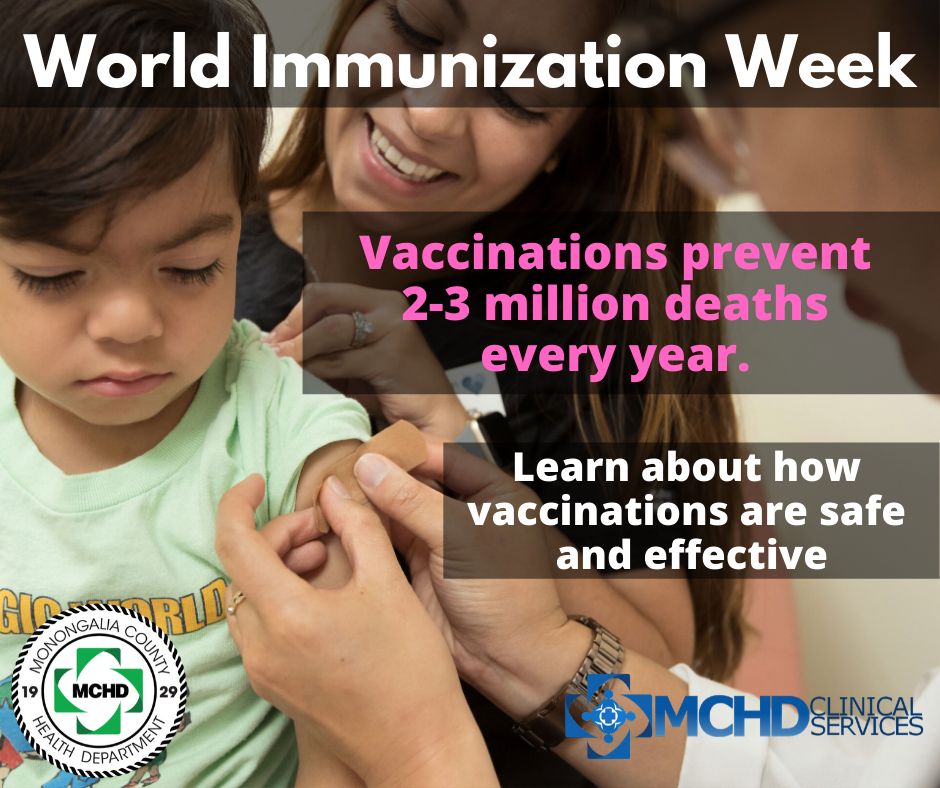Now more than ever, the importance of vaccines is apparent

Apr. 30, 2020
By Matt Cimino
Now more than ever, the importance of vaccines is apparent. With COVID-19 expected to re-emerge during the fall, coinciding with seasonal influenza, you’ll definitely want to protect yourself from the latter in an effort to stay safe from the pandemic illness for which there is no inoculation yet.
Of course, the influenza vaccine is not recommended for babies under the age of 6 months, so that is why it is recommended that all pregnant women receive one.
That’s just one issue to discuss during World Immunization Week, which started on Friday. It coincides with National Infant Immunization Week, which begins on Sunday.
The World Health Organization, along with Centers for Disease Control and Prevention (CDC) and many other organizations promote the use of vaccines to protect against the spread of disease. Immunization is considered to be one of the most successful and cost-effective health treatments in the world, saving millions of young and old lives every year.
World Immunization Week’s specific theme #VaccinesWorkforAll focuses on how all who develop, deliver and receive vaccines are heroes for protecting themselves and others. The main goal of this campaign is to encourage more people to get vaccinated. Routine immunization protects children and entire communities. It is most effective when everyone receives the treatment.
National Infant Immunization Week (NIIW) focuses on protecting children 2 years and younger from vaccine-preventable diseases (VPDs). Some VPDs include diphtheria, tetanus, measles and mumps. As part of WHO’s World Immunization Week, NIIW also seeks to provide universal access to vaccines and the information surrounding them.
This year has presented a unique challenge to global health. As COVID-19 spreads through communities far and wide, one cannot help but imagine how the situation would be different if a vaccine existed.
Top health experts work tirelessly in the pursuit of it. Vaccinations of the general public would ultimately protect those who are at the highest risk of developing severe complications. COVID-19 remains an ongoing battle as the year progresses and countless organizations are working hard to ensure current vaccines remain available.
So, you may be asking yourself, “Why are vaccines so important?” or “How do they work?” Vaccines are like training wheels on a bicycle. They are important to have because they prepare you to ride on your own. If you hop on a bike for the first time without them, there is a good chance you will crash. Now apply the same idea to a vaccine. It helps your body develop an immunity by imitating an infection, so that when the real thing comes around your body is ready to fight it off. Vaccines do not cause illness, but rather they stimulate the immune system to produce antibodies.
Sometimes you may feel a bit different after receiving a vaccine. This does not mean you are sick. It is your body reacting to a foreign invader and building up memory on how to fight it. Once there are enough of these antibodies, the vaccination process is complete.
It is very important to vaccinate infants and children. According to the CDC, routine childhood immunization from 1994-2018 will prevent an estimated 419 million illnesses. Almost 1 million early deaths will also be prevented. Childhood vaccination rates remain high in the U.S., but one of the greatest challenges to maintaining this is the spread of misinformation. When misleading or untrue information spreads, youth vaccinations can decrease. This change can lead to outbreaks of Vaccine Preventable Diseases.
Small resurgences of measles throughout 2019 have been attributed to decreases in vaccinations. Because West Virginia has some of the toughest vaccination laws in the country, our state didn’t experience any cases during that outbreak.
Vaccines are an incredible medical technology that protect us from illness and disease. Maintaining high immunization rates are key to protecting entire populations from outbreaks. While a vaccine has yet to be discovered for COVID-19, it was of course the first preventive measure researchers jumped on.
Although Monongalia County Health Department's Clinical Services program is not offering vaccines as the pandemic surges, we expect to be back at it closer to the start of school in the fall. When that date gets closer, call 304-598-5119 to make an appointment.
Matt Cimino is an intern in the public information office at Monongalia County Health Department.